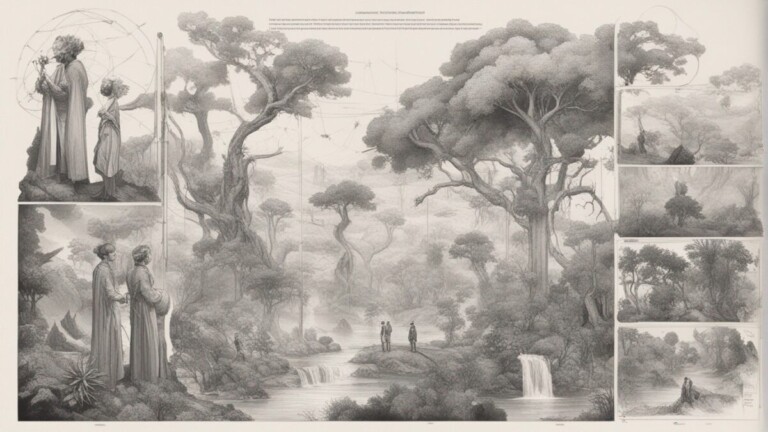Methodological Naturalism: Unveiling the Framework of Scientific Inquiry
Methodological naturalism stands as a foundational principle in the realm of scientific inquiry, guiding researchers in their pursuit of understanding the natural world. This comprehensive exploration delves into the intricate dimensions of methodological naturalism, tracing its historical roots, elucidating its fundamental principles, examining its implications for scientific research, and addressing the debates that surround its application. From its emergence as a guiding principle to its role in shaping the landscape of modern science, this in-depth analysis aims to shed light on the framework that underpins our quest to unravel the mysteries of the universe.
Historical Origins and Evolution: The origins of methodological naturalism can be traced back to the roots of modern science itself. As scholars sought to untangle the complexities of the natural world, the separation of scientific inquiry from theological or supernatural explanations emerged. The Enlightenment era played a pivotal role in solidifying the idea that natural phenomena should be explained through empirical observation, experimentation, and rational analysis.
Defining Methodological Naturalism: Methodological naturalism is a guiding principle that confines scientific investigation to the study of natural causes and processes. It asserts that scientific explanations should rely on natural laws, observable phenomena, and empirical evidence, excluding supernatural or metaphysical explanations. While methodological naturalism restricts scientific inquiry to natural phenomena, it does not make claims about the existence or non-existence of the supernatural.
Principles and Application: Methodological naturalism operates on a set of core principles. It upholds the importance of testable hypotheses, empirical evidence, and falsifiability. Researchers engaged in scientific inquiry adhere to these principles, grounding their work in observable phenomena and natural processes while avoiding reliance on untestable or non-empirical claims.
Implications for Scientific Research: Methodological naturalism shapes the landscape of scientific research in profound ways. It encourages the development of hypotheses that can be tested through experimentation and observation. This principle has led to the advancement of scientific knowledge across various disciplines, from physics and biology to psychology and cosmology.
Challenges and Debates: While methodological naturalism is a cornerstone of scientific inquiry, it is not without its challenges and debates. Critics argue that its exclusion of supernatural explanations can be restrictive, potentially inhibiting the exploration of certain phenomena. Some also assert that methodological naturalism may unintentionally stifle creativity by placing boundaries on the types of explanations that can be considered.
Theological and Philosophical Considerations: The relationship between methodological naturalism and religious or philosophical worldviews has sparked intricate discussions. While methodological naturalism itself does not address the existence of the divine, its application can intersect with religious beliefs. Debates surrounding the compatibility of methodological naturalism with various faith traditions have led to nuanced conversations about the boundaries between science and spirituality.
Expanding Horizons and Interdisciplinary Exploration: As scientific knowledge advances, the boundaries of methodological naturalism are continually explored. Interdisciplinary fields, such as cognitive science, consciousness studies, and quantum mechanics, raise questions that challenge traditional paradigms. Researchers grapple with how to apply methodological naturalism in contexts that may stretch its principles.
Continued Evolution and Exploration: The landscape of methodological naturalism is not static. As scientific understanding evolves and new questions arise, the framework itself undergoes refinement. Researchers, philosophers, and scholars engage in ongoing dialogue to navigate the complexities of methodological naturalism, ensuring its relevance and adaptability in a dynamic scientific landscape.
Navigating Boundaries and Shaping Inquiry:
Methodological naturalism stands as a guiding light that illuminates the path of scientific inquiry. It has shaped the way we investigate and understand the natural world, providing a framework that relies on empirical evidence, testable hypotheses, and observable phenomena. By exploring its historical foundations, core principles, and contemporary implications, we gain a deeper appreciation for the role methodological naturalism plays in advancing human knowledge and unraveling the mysteries of the universe.
